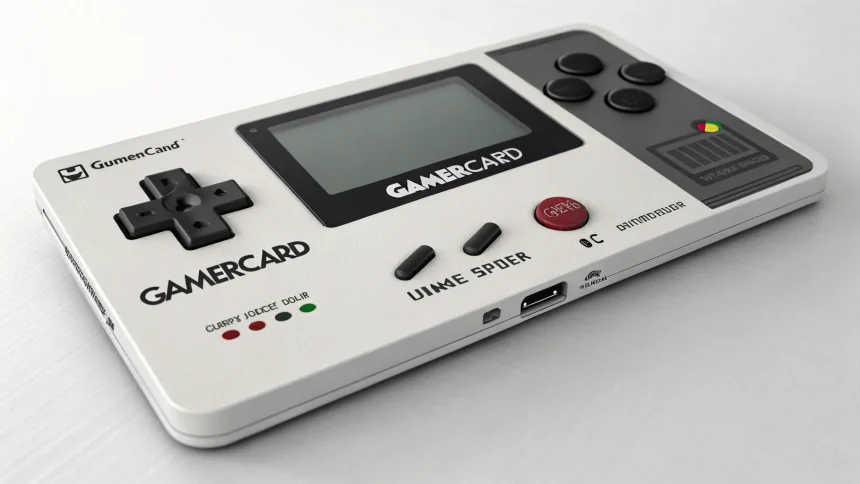A new handheld gaming device called the GamerCard is challenging traditional gift card concepts by offering a fully functional gaming console in a similar form factor. The innovative device, powered by Raspberry Pi technology, aims to provide consumers with a more valuable alternative to standard gaming gift cards.
The GamerCard maintains approximately the same dimensions as a typical gift card but delivers actual gaming capabilities rather than just store credit. This approach represents a shift in how gaming products might be marketed and sold in retail environments.
Technical Foundation
At the core of the GamerCard sits a Raspberry Pi computer system, a popular single-board computing platform known for its versatility and strong community support. The integration of this technology into a card-sized form factor demonstrates clever engineering and design work.
The device appears to be part of a growing trend of miniaturized gaming systems that leverage affordable computing components to create portable gaming experiences. Unlike many portable consoles that require larger form factors to accommodate controls and displays, the GamerCard maintains a slim profile similar to items typically found at checkout counters.
Market Positioning
The GamerCard’s concept directly challenges the value proposition of gaming gift cards. While traditional gift cards simply provide credit for future purchases, this device delivers immediate functionality and entertainment value.
This approach might appeal to gift-givers looking for more tangible presents than digital credit, while still maintaining the convenience and size benefits of a gift card. For recipients, the value extends beyond a one-time purchase to a reusable gaming platform.
The product also appears to target the growing market for retro and indie gaming experiences, which has expanded significantly with the popularity of emulation and small-form-factor computing devices.
Notable Development Background
According to available information, the GamerCard comes with an “interesting pedigree,” suggesting its development team or company may have relevant experience in gaming hardware or software. This background could lend credibility to the product in a market often crowded with novelty gadgets.
The gaming hardware landscape has seen numerous crowdfunded and independent projects in recent years, with varying degrees of success. Products that manage to combine novelty with genuine utility tend to find the most traction among consumers.
The GamerCard joins other Raspberry Pi-based gaming projects that have gained attention in the maker and gaming communities, though its gift card-inspired form factor appears to be a unique approach in the market.
As consumers increasingly look for innovative tech gifts that provide lasting value, products like the GamerCard may represent a new category that bridges the gap between disposable gift cards and more substantial gaming hardware purchases.









